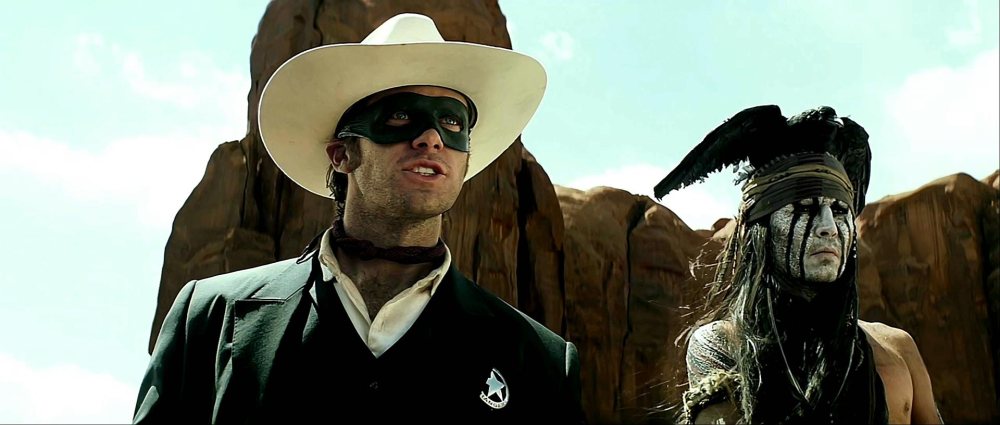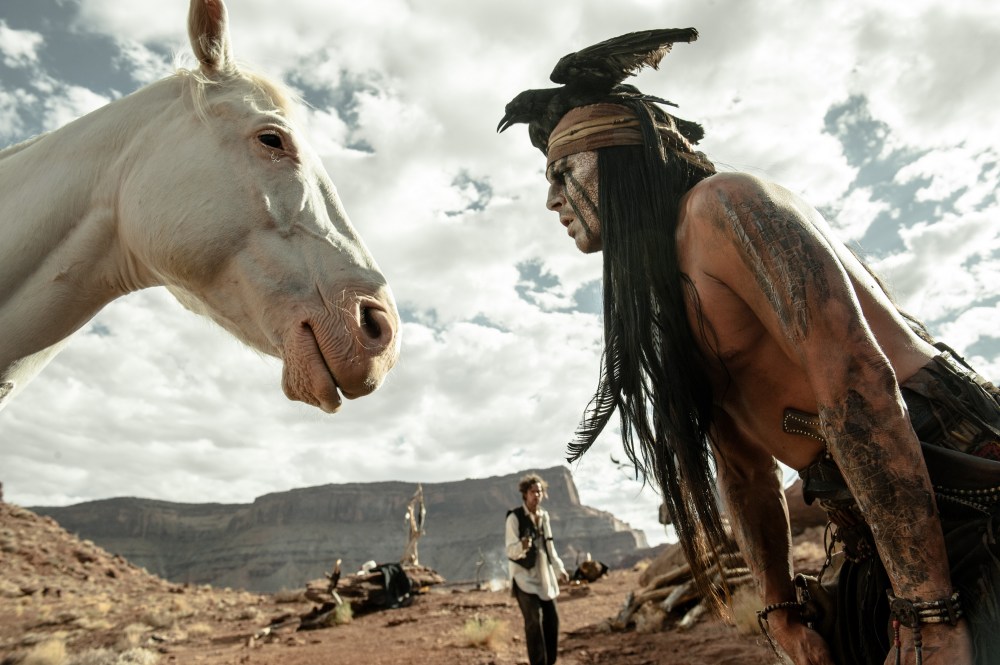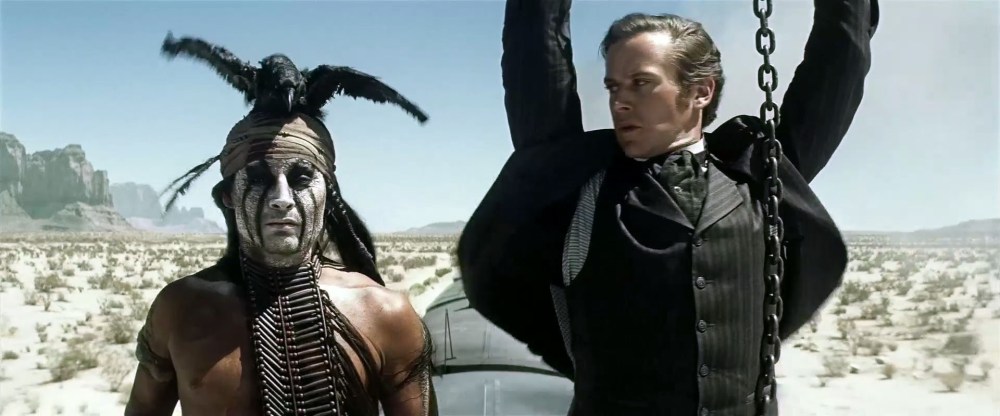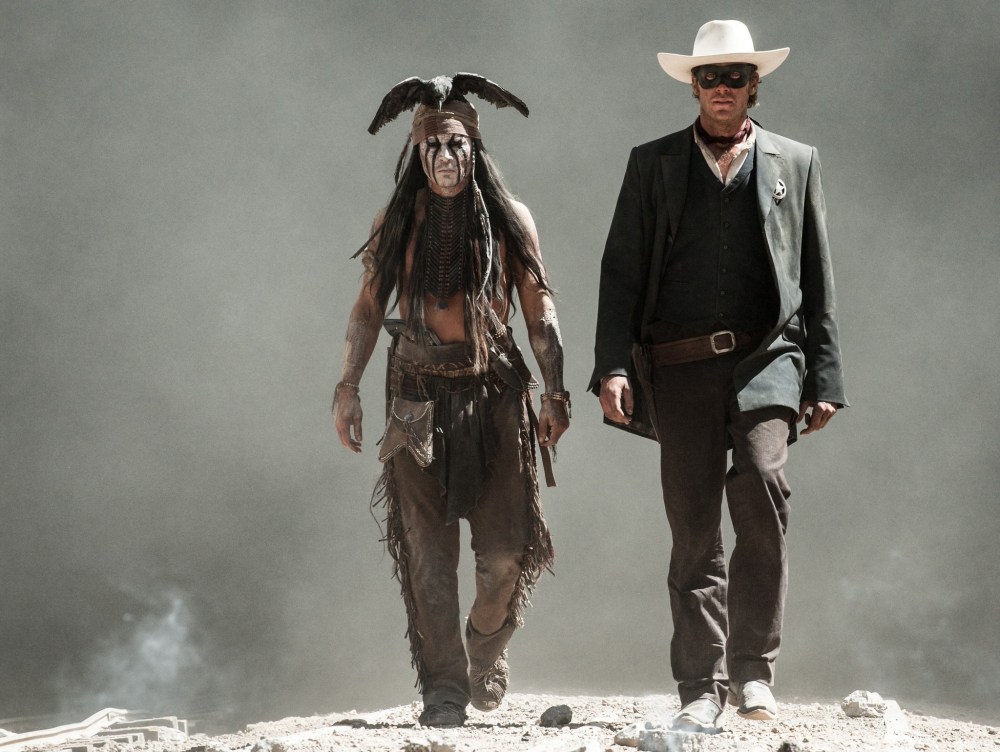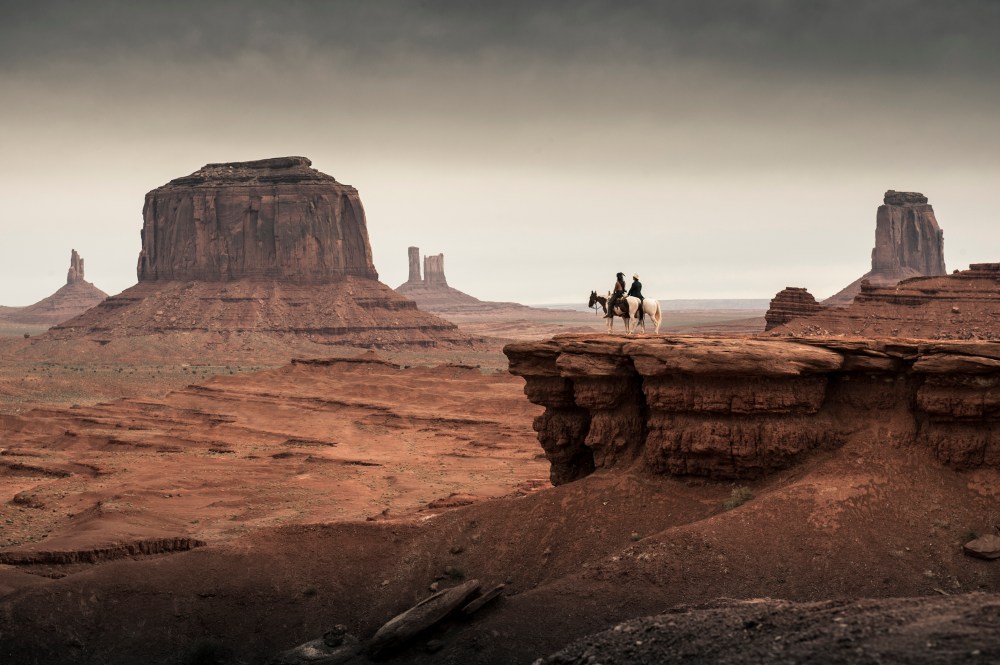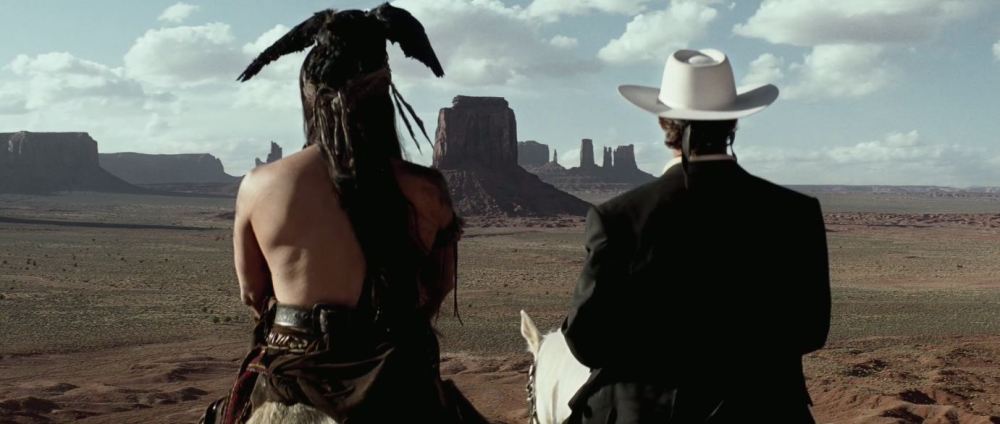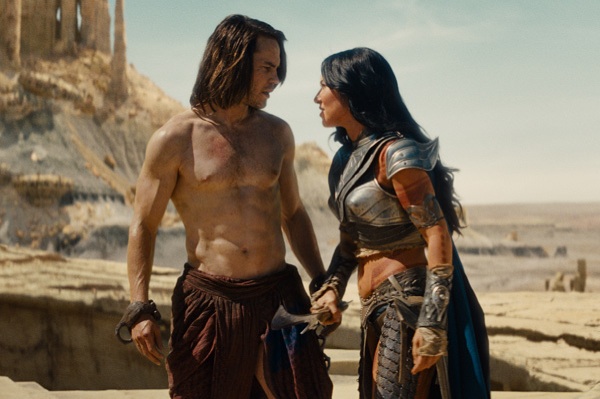
The Lone Ranger’s Unbankable Intrigue
At the beginning of Matt Zoller Seitz’s review of The Lone Ranger he encapsultes exactly what’s right and wrong with the film in my eyes:
Like “Speed Racer” and “John Carter” before it, “The Lone Ranger” is a movie with no constituency to speak of. It’s a gigantic picture with a klutzy, deeply un-cool hero (Armie Hammer of “The Social Network”), based on a property that most young viewers don’t know or care about. It arrives in theaters stained by gossip of filmmaker-vs.-studio budget wars, and concerns that its star and co-executive producer, Johnny Depp, would play the Ranger’s friend and spirit guide, Tonto, as a Native American Stepin Fetchit, stumbling around in face-paint and a dead-crow tiara. The film’s poster image might as well have been a target. Too bad: for all its miscalculations, this is a personal picture, violent and sweet, clever and goofy. It’s as obsessive and overbearing as Steven Spielberg’s “1941” — and, I’ll bet, as likely to be re-evaluated twenty years from now, and described as “misunderstood.”
You really should read the whole review it’s simply replete with brilliant observations about the movie, but what struck me most was that beginning wherein it enumerates not only kind of how I walked out of the film feeling but also what was miscalculated about it in terms of its being a tentpole.
As I tweeted when the numbers started coming in, and I should’ve put it out there earlier, you could’ve seen the box office failure of the film coming. It was a film that almost didn’t happen and after John Carter flopped you thought it might not. It’s almost like they went back to a well that ran dry hoping to find water this time because they brought Johnny Depp along.
Lack of Bankability
Not to sound too crass, as I did like it, but clearly the same inherent issues that John Carter had in terms of bringing out the masses The Lone Ranger was sure to have. It seems tiresome but every time there’s some sort of box office bomb it makes me want to list who is involved. Yes, there are still plenty of good actors and movie stars, but guaranteed draws are very few.
Off the top of my head it seems only Tom Cruise and Adam Sandler get people to show up, but even Cruise had the under-viewed Jack Reacher just recently. As with Sandler, I have to wonder how much of that is morbid curiosity because after seeing Grown Ups 2 I wanted to curl up into the fetal position, weep and wish it was still 1999.
So, in spite of the fact that this film also is a good one, likely a much better one than John Carter, I never saw it as a money-maker. I couldn’t have predicted how insanely Despicable Me 2 would open (It really is Universal’s year it seems; R.I.P.D. notwithstanding) but in a vacuum this is not one I had high hopes for in that regard.
Disney Issues
It’s even more frustrating because if you follow what Disney does you know they acquired Lucasfilm and will be bringing Star Wars back. Sure that cost a lot of money both in acquisition and the production of the five announced films, but could they just grin and bear it for a while and know they’ll see a return on that investment, especially with the Marvel leviathan growing ever bigger? No, they just had to gut their hand-drawn animation staff.
Yes, hand-drawn is costly, but it did all begin with a mouse and all those investments will yield dividends but you can’t forget where you came from. New Mickey cartoons are great but it’s bittersweet to say the least.
Reflexive Western
Back to The Lone Ranger, as for the film itself, it’s constructed in such a way that we can likely go back to it and start parsing the visual cues and narrative references to diagram the deconstruction of the western, as Zoller Seitz does and this review does.
It takes an old character, and perhaps a cynical, nihilistic advantage of older connotations of Disney films and toys with expectations and creates this The Lone Ranger perhaps the only way he can exist now and re-creates Tonto perhaps as he always should have been.
Does Depp being Depp undercut some of the commentary being made on race and the old west, Manifest Destiny and all the rest? That was something I grappled with as the film played. In the end, I don’t think it does for narrative perspective has to be taken into account. This is really Tonto’s story from the opening shot to when he tells The Lone Ranger to “Never do that again,” after finally breaking out the anticipated (by those who know something of the character) catch phrase “Hi-yo, Silver, away!” at the very end.
There’s lamentation and regret from both characters in this tale: The Ranger for his lost ideals, and Tonto for his naive mistake. In some ways the film plays like a lament of the loss of the old Western, not the Old West. When film and society was more naive the Western was the canvas of absolute ideals, as we’ve come to terms with our past as a nation and further world events have stripped that naïveté; the Western had to grow up. The films are now adult tales for adults who remember the genre as children and don’t cater as well to a young audience anymore because it’s not really in the pop culture landscape anymore, not for kids.
While this allows the film to do some interesting thing in terms of commenting on genre, history, race, the country in general; it’s not box office material, especially considering the amount of money invested in this film.
Lastly, the character of Tonto, for how it used to be portrayed, is likely a racist symbol to many. Honestly, the only exposure to the character I had as a kid was in SNL parodies of Tonto, Tarzan and Frankenstein. I don’t think there will be a consensus of where this rendition falls. All I know is in culturally sensitive matters there is never a unanimous sentiment and hardly ever a consensus. From my perspective, as one who had my defenses up waiting for something that crossed the line, I really don’t think it did. Especially when the tribe s introduced and explains Tonto’s story.
When one went in not knowing what to expect it was far too easy to be caught off-guard by the film; far too easy too take it at face value as over-produced, overly-expensive fluff, but there’s more to it than meets the eye, which is what makes it interesting even if it won’t make it profitable.
